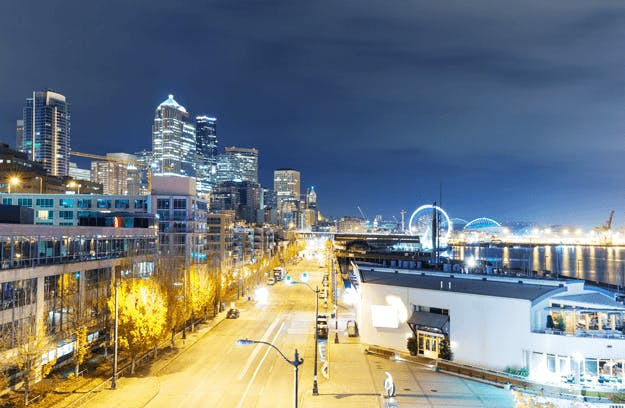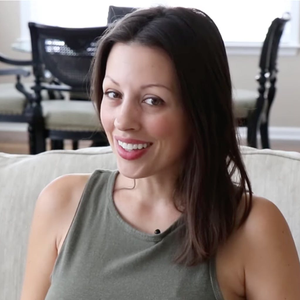
Washington state may be home to some of the richest tech-industry moguls, but it’s also a place for natural beauty and wonders that literally can’t be found anywhere else. Whether you’re into the beautiful, wheat-laden hills of the Palouse or the damp mystique of the Hoh Rain Forest, Washington State is “wild and wonderful” enough to steal that motto right out of West Virginia’s grasping hands. While Washingtonians may love their state, the constant confusion between Washington State and Washington, D.C. is about as infuriating as it gets aka “There’s a Washington STATE?” Yes. Yes, there is. To be clear, if you do call Washington State home, the reverie you feel while immersed among nature’s bounty can easily be marred by the covetousness of your fellow man. With an average annual income that is not just above the national average, but increasing yearly, Washingtonians will likely want to consider getting home security installed sooner, rather than later.
Home Security Provider Requirements for Washington
Oh boy, Washington. We are so, so sorry. Your state is one of the most regulated states in the country for home security providers and customers. There are more laws on the books across the state regulating this industry (including many local false alarm laws) than in any other state. New York comes in second here, and even then, Washington wins by a fairly significant margin. We’ll let you decide whether that’s a good thing or a bad thing. Just be warned: You may have to sift through a mound of legal documents before finally making a decision on whether you will or will not get a security system installed. There’s a lot to go over here, so we hope you’re sitting down somewhere comfortable.
First, let’s look at how Washington handles home security provider requirements on a state-level basis. As a state, Washington does not have specific hiring or licensing requirements for home security providers. What they do have is a licensing requirement for anyone who wants to do electrical work in people’s homes. This is a tertiary method of regulating the industry, but is meant to cover a large number of industries, so it does not target home security providers specifically. That said, those installing your security system must have this license, or they cannot actually do any work in your home. It’s a deal-killer. You can sit back comfortably with the knowledge that the person messing around with your home’s wiring is not going to blow a fuse (only in the literal sense–we can’t promise they won’t get angry about something). The real madness begins when you start looking at Washington’s municipalities.
Home security is a big business in Washington. This is why most counties and municipalities in the state have their own ordinances, statutes and laws regarding what home security providers can and cannot do, and what individuals getting such systems installed can and cannot do. The Electronic Security Association of Washington provides very detailed information on their website to help security providers break this information down. Their website is fairly organized, but you wouldn’t want to be in their shoes. Every district is different, making things a bit of a nightmare for anyone in the business. This document, provided by the Washington ESA, helps break down some of the more basic information for each municipality. The short summary of it is this: Most places in Washington will require registration fees from customers. Most will issues fines if you have too many false alarms. Most will not respond directly to burglar alarms, and require two-step verification before they do respond. Put simply, Washington, your local governments are very concerned with all of those false alarms you’ve been creating.
What are you not going to find much of in Washington? Requirements for who can or cannot become a home security provider, as well as many other regulations on how home security providers do business within the state. Washington does not take the route of states like Illinois, which has strong requirements on the individuals who can be hired by home security providers. Granted, some of these local ordinances and regulations do place specific “duties” and “requirements” for home security companies. And most counties and/or municipalities in the state do require security alarm providers to register their businesses with the local government. Most regulations, however, relate specifically to ensuring the companies (and users) are maintaining high standards to avoid false alarms. We’re not sure what you Washingtonians did to incur the ire of your local governments, but one thing is for sure. They are overly concerned with your many false alarms eating away at their governmental resources. We won’t judge. Washington State has a higher-than-average number of property crimes, so we understand why you may well be concerned and just a bit jumpy at times.
Perhaps unique to Washington is the fact that several municipalities require home security providers to install certain types of equipment. The primary ones are security alarm systems that are CP-01 compliant. We know how much you likely hate industry jargon, so we’ll make this really simple. The CP-01 standards are a set of device guidelines agreed upon by home security industry associations with the intent of significantly decreasing false alarms. The standards help minimize some of the main situations causing false alarms to happen by changing the way the security system works. The end result is a decrease in the likelihood that these things will happen. This includes increasing the exit timer on a system so people have more time to enter in their security code, allowing for cancel messages to be sent if an alarm is triggered accidentally, and allowing for the exit/entrance timer to be delayed to allow more time for input. There are others, of course, but the primary reasons why false alarms are triggered are due to individuals forgetting their codes. Home security providers have much less to worry about in Washington than those receiving home security services. Still, they have to navigate the laws on your behalf, so you may want to thank your provider for taking on the extra work.
Erecting Home Security Cameras in Washington
The general trend and advice for those who want to put up a few security cameras around their home is this: Avoid audio! At all costs! Just don’t do it! Washington State is fairly clear when it comes to what can and cannot be recorded. As far as video, you’re fine putting up security cameras that do not record anyone in a setting that is both private and in which they can expect privacy. Audio, however, can snag your home security plan. Washington State is one of several states that requires two party agreement to recording of a private conversation. That means that everyone in a private conversation must agree to having their conversation recorded. Now, you may think that this law only covers conversations that happen in intimate and private settings. Nay, nay. Private conversations can happen anywhere, even on the street. So if you have surveillance cameras around your home that have both audio and visual recording capabilities, you may be on the hook if you happen to pick up a private conversation on your front doorstep to which you were neither privy nor allowed to record.
“But what if I put up signs that say I’m recording audio and video?” That’s a good question. A+ for smart thinking! The legal ground for this scenario is very murky, at best. Do people implicitly agree to being recorded in a public place (both audio and video) if there are clear and visible signs? Perhaps. Perhaps not. Someone may see the sign, acknowledge that they are being recorded, and find no legal grounds to contest. In a 2008 court case, Washington’s Supreme Court decided that “A party is determined to have consented to recording if he is aware that the recording is taking place.” However, what happens in the case of, say, individuals who are blind? Not that a blind individual will likely be robbing your home any time in the future, of course, but if you happen to capture very private conversations from individuals who literally had no way of knowing you were recording them, this is likely to be considered trampling on their right to privacy.
Laws governing video recording and audio recording in Washington are just about the same as you’ll find in most places. There are really no surprises here. Security cameras are perfectly fine, as long as they are not invading private places or recording illegal pornography. You may squeeze by with having audio recording capabilities if you have visible signs up in any location that is covered by your cameras. Your best bet is to stick with video and video alone. The legal nightmare of accidentally capturing private audio from an unforgiving individual might not be worth it.
Safety During Natural Disasters in Washington State
If you live in Washington State, you are no stranger to natural disasters that simply don’t happen in many other parts of the country. While Mount St. Helens blowing her top is certainly rare, it is not something mankind can control, let alone accurately predict. Washington State’s Emergency Management Division provides a helpful list of the kind of natural disasters that are either common or possible in the state. Your obvious best bet for any natural disaster is to have an emergency escape plan (where necessary) and emergency provisions in place. But some disasters that are more common in Washington State, such as earthquakes, floods and tsunamis, might just need a little bit of extra attention.
Earthquakes are exceedingly common in Washington State. Thankfully, you won’t feel the majority of them. The ones that do occur are often small, but every now and then major ground shakers can and do strike. Earthquake safety starts with knowing where to turn and what to do. One of the last places you want to be in an earthquake is in a basement area. Earthquakes can cause houses to crumble, and a basement can quickly turn from a safe space into a tomb. As morbid as that sounds, it’s a reality. For earthquakes, make sure that you retreat to an inner hallway and to an area free from things that could fall down on you. Try to hide under a heavy object — such as a sturdy table or a desk — to avoid falling debris. Always be aware of aftershocks, which can happen without warning following a major earthquake.
Tsunamis and floods can often go hand in hand. Tsunamis can cause massive and damaging winds and waves, and can lead directly to flooding in coastal areas. If you are in an area prone to either, always make sure you have an escape plan when it is needed. Have emergency, drinkable water with you, and food rations that are dry and away from any potential flood areas. If you see that waters are starting to rise during a flood, do not stay in your home or the lower areas of your home. Get to high ground as soon as possible. Flood waters can move quickly and unpredictably. Your home may have looked safe from oncoming flood waters one minute and be submerged the next. If you find yourself stuck in your home, go to the highest point in your house possible, carrying with you any extra food, water, clothes, blankets and emergency materials.
If you call Washington State home, we’re not just jealous of you, we’re happy for you. Washington State is a great place to visit, and most residents will tell you that it’s one of the best places to live. Still, the state has some of the highest rates of property crime in the country, so living there, while fun, does mean taking a bit of an extra precaution. Just promise us you’ll be careful with the false alarms, Washington.

